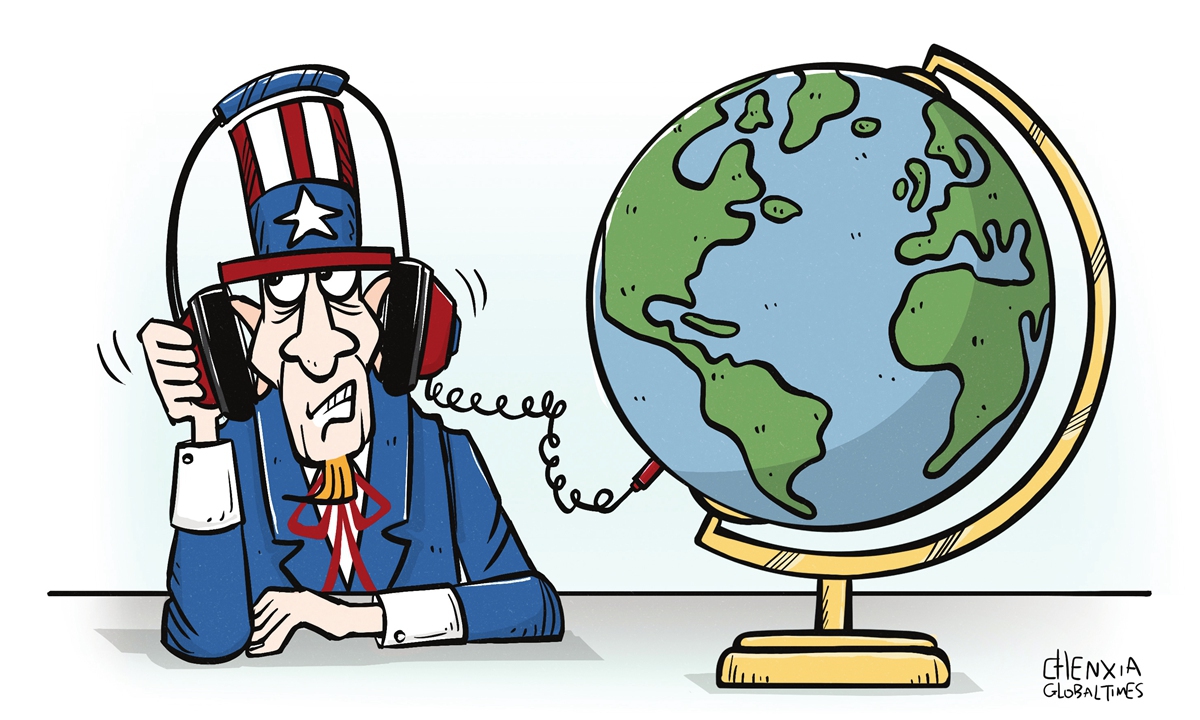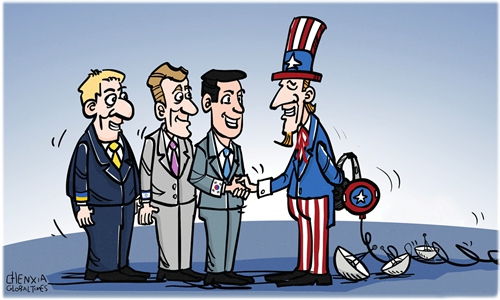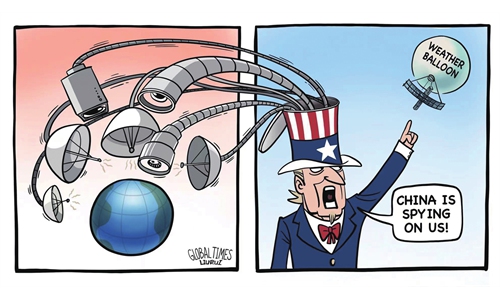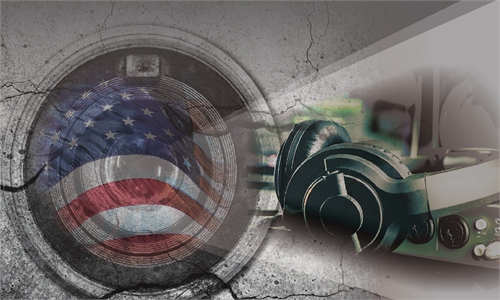
Illustration: Chen Xia/Global Times
A few weeks ago, Jack Teixeira was just another young adult in the US. He was a 21-year-old member of the Massachusetts Air National Guard who had a presence on social media. Overnight, Teixeira became a household name when he was identified as the man accused in the latest classified documents leak.
The legacy of leakers in the US is well known. The full force of the political elites, joined by many in the mainstream media, will coalesce around one conclusion: The leaker is a traitor to the country, someone who has damaged national security. Anyone who dares tell the world about the seedy parts of the US government faces the wrath of the elites, and those elites want to deflect attention from the information in the leak and instead condemn the person who has revealed truth.
Daniel Ellsberg, responsible for the Pentagon Papers release in the 1970s, knows that. He could have spent years in jail but a judge ruled that government overreach into its investigation of Ellsberg meant that all charges against him had to be thrown out.
Edward Snowden knows that. A decade ago, Snowden exposed the rampant, and unconstitutional, effort by the US government to surveil American citizens and global political leaders. Convinced that he stood no chance at a fair trial, Snowden left the US and is now a naturalized Russian citizen.
It is too soon to determine the scope of, and the fallout associated with, what Teixeira did. For now, we know that the documents he allegedly leaked pertain primarily to military affairs, with the most damning leaks suggesting the US spied on the leaders of Ukraine, South Korea and Israel, all key American allies.
As Teixeira's story unfolds in the coming months, one issue cannot be ignored, although it is not likely to generate significant coverage in the US media -- the distrust that young people, Americans in the same age bracket as Teixeira, have in their government and other institutions.
In a survey last year, the progressive think tank The Next 100 partnered with The GenForward Survey to review young adults' opinions of the government. Two findings stand out: First, black respondents were especially disconnected from the government and the country, and all respondents, regardless of demographics, had low trust toward the federal government.
A November 2022 survey from the Ronald Reagan Institute found trust and confidence in the US military stands at 48 percent, down from 70 percent in November 2018. A retired Navy SEAL sounded the alarm about a declining number of young men and women willing to serve in the US military, according to Fox News on Sunday.
Perhaps the most important warning sign here is that if young adults in the US do not feel an attachment to the fundamental institutions of society -- government, business, police, media and more -- then they might feel no reason to participate in or support them throughout their lives. For example, they could opt to not vote or to not be engaged in civil society. Moreover, this generation, which has grown up with its eyes glued to a smartphone and its thumbs banging out one text after another, has shown at best a tolerance, at worst a desire, for a social and information life delivered to them through algorithms. To stop and ask for facts and truths in such an environment could lead to being defined as weird. Ostracism comes along quickly after that.
Real conversations with real people about real topics? A tuned-out generation -- with some pockets of it eager to spend time on some platforms that thrive on delivering messages of hate about people of Hispanic, African or Asian heritage -- will not only show zero interest in engaging in society, but it will also seek comfort in a dangerous social media-driven universe that profits off ideologies and ideas anathema to American values.
We know that one reason Donald Trump succeeded as a politician in 2016 was because he preyed on people's insecurities and fears. Millions of men and women -- of all ages -- found their hero in a man who did not care at all for their wellbeing. Unwilling to listen to hard truths about their hero, they voted for him. Millions of them did twice. And a small percentage of them accepted his call to violence and almost succeeded in undermining democratic norms on a cold January day in 2021. Now, imagine if the next generation sees little reason to protect even more of those country's values.
Crazy talk? Hardly. A generation that grows up ingesting and believing information of dubious value or designed simply to entertain might very well see no reason to endorse America's institutions because they have not learned to value them.
The author is an associate professor at the Department of Communication and Organizational Leadership at Robert Morris University. This is the fourthth article of the "Spying empire" series. opinion@globaltimes.com.cn



